Let me be blunt: keeping track of the upcoming esports events schedule is like trying to fold a fitted sheet while a cat attacks your socks. It looks simple. It is not. I’ve done this job for over ten years. I’ve juggled esports calendars, tournament dates, LAN finals, group stages, open qualifiers, Swiss stages, prize pools, travel, and one very angry time zone converter.
So if you’re looking for a friendly guide you can actually use, you’re in the right place. I’ll share what I know, what I think, what I’ve messed up, and how not to miss a big match by keeping up with the upcoming esports events schedule. Yes, that happened to me. Twice.
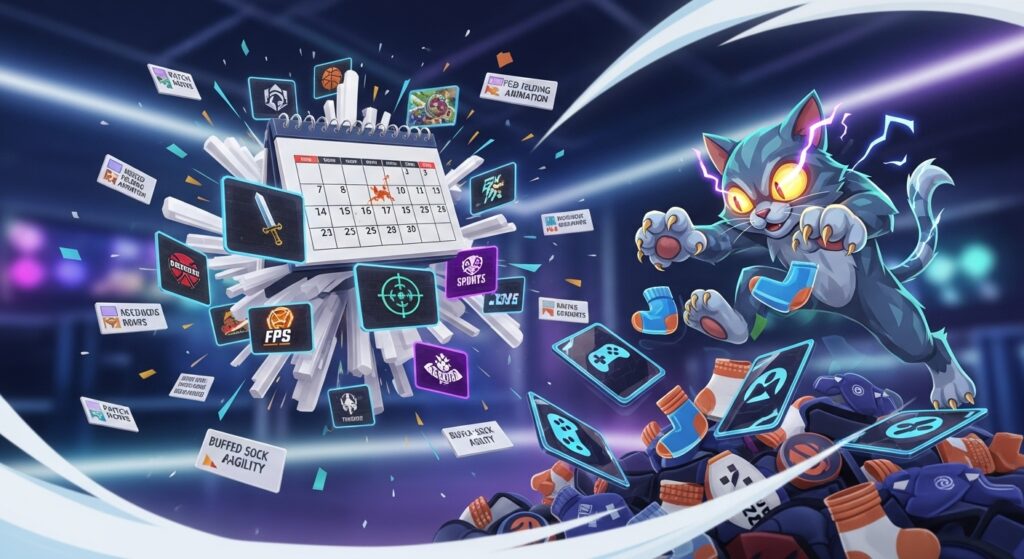
Why I still track every season like a fan with a spreadsheet problem
In my experience, esports is part sport, part software update. One minute you’re sipping coffee and marking Masters dates, the next minute a new patch drops, a meta flips, and your team looks like they forgot how to walk. I’ve always found that keeping a simple, living upcoming esports events schedule beats any fancy app. And I mean simple.
Big rocks first: Majors, Worlds, Champs, The International, EVO. Then I fill in splits, regional playoffs, qualifiers, showmatches. I also note roster lock windows, venue announcements, and ticket sale dates because those sneak up like a stealth flank.
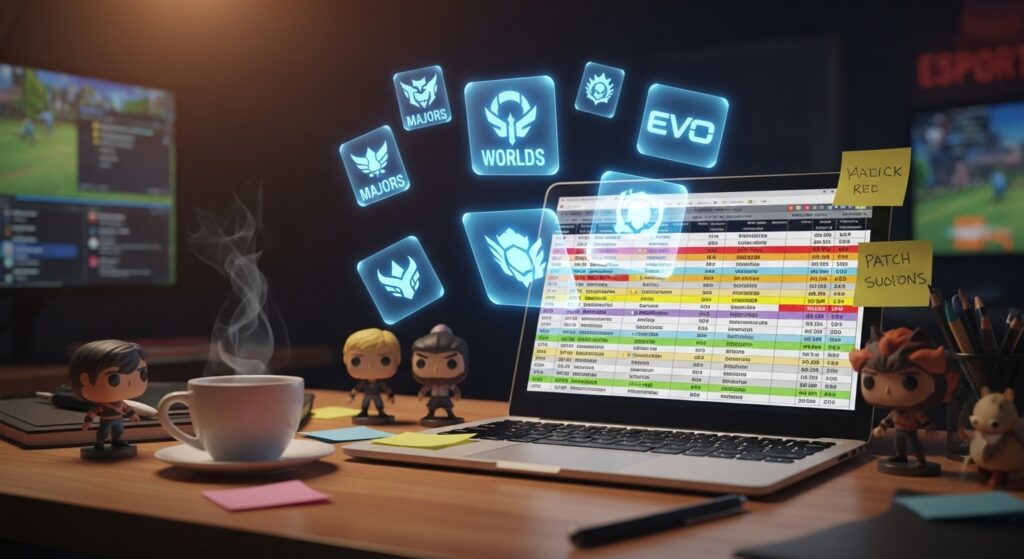
By the way, if you ever want the 10,000-foot view of which games run what events, the giant list on Wikipedia is handy as a starting point: list of esports competitions. Not perfect. But good for a quick scan. And for headlines and breaking stories, I keep an eye on BBC Sport’s esports page because someone there always posts right when I step away to microwave noodles.
How I organize the year without losing my mind
I start with the “usual suspects” for the year. Some dates move. Some go poof. But patterns do exist. Keeping track of the upcoming esports events schedule helps me spot them. ESL likes Katowice early. Cologne mid-year. Dota peaks with The International in Q3–Q4. VALORANT does Kickoff, Masters, Champions. League of Legends has Spring, MSI, Summer, Worlds. Rocket League stacks Majors and Worlds late. Fighting games go hot around EVO season. That rhythm keeps me sane.
What I think is: publishers will keep “Swiss stage” formats around because viewers get more big matches earlier. It keeps the bracket spicy without knocking fan-favorite teams out on day one. I talked about this more in this piece on 2025 esports tournament updates—Swiss speed, bigger stakes, if you care about formats as much as I do. Which is… probably too much.
Quick-look calendar: the big beats I’m tracking
Read this like a map, not a promise. Stuff moves. Flights get delayed. Patch notes arrive at 2 a.m. But this is the baseline I plan around.
| Month | Likely Highlights | Notes (LAN/Online) |
|---|---|---|
| January | VCT Kickoff prep, CS2 early events, regional league openers | Roster locks, new metas, a lot of online qualifiers |
| February | IEM Katowice (CS2), LoL Spring split in full swing | Big arena LAN, early power rankings get real |
| March | VALORANT Kickoff events conclude, R6 first Major qualifiers | Swiss or group stages, ticket sales for summer start |
| April | Dota Major #1 window, Rocket League Major, FNCS split | LANs crank up; visa drama season begins |
| May | MSI (LoL), VALORANT Masters #1 | International LANs, brutal time zones |
| June | CS2 big leagues (EPL/BLAST), R6 Major, FGC qualifiers | Travel months; pack snacks and a power bank |
| July | IEM Cologne build-up, EVO prep, VCT Stage events | Heat waves, hot brackets |
| August | EVO, IEM Cologne (CS2), VALORANT Masters #2 | Stacked LAN month; sleep is optional |
| September | Dota Major #2, Rocket League Major, CDL Champs window | Playoffs galore; start Worlds travel plans |
| October | LoL Worlds start, The International window | Two giants at once; rip my calendar |
| November | LoL Worlds finals, VCT Champions | Endgame LANs, peak hype |
| December | All-Star/Showmatch events, MLBB M-series, Brawl Stars Worlds | Lighter pace, holiday specials, memes |
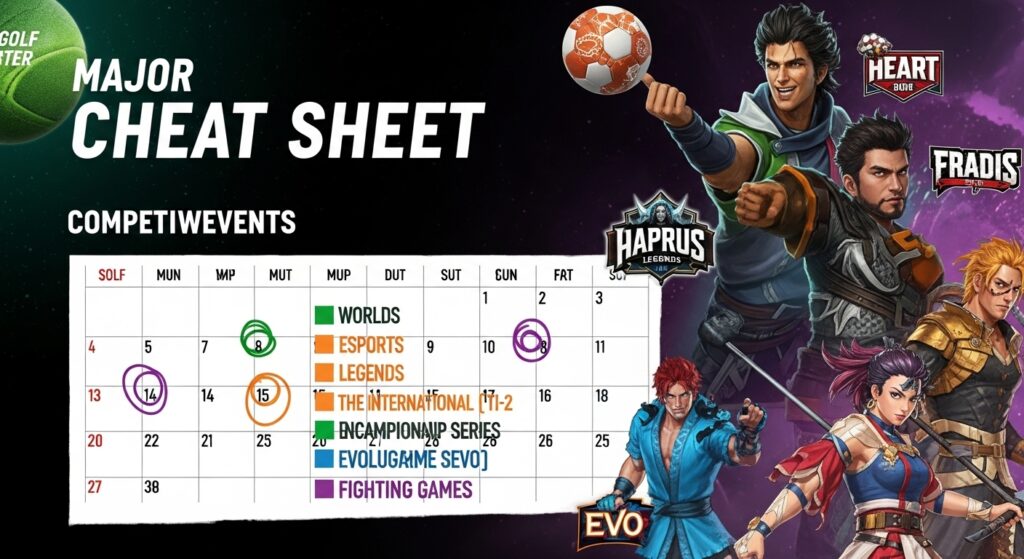
A game-by-game breakdown (the way I actually plan)
League of Legends
What I watch for
Spring split starts early. MSI sits around May. Summer runs into Worlds starting around October, finals in November. I check LEC, LCS, LCK, LPL regional playoff windows and note crossovers. Following the upcoming esports events schedule in my notebook, I color Worlds red. It’s my “do not book flights that clash with finals” warning.
Tips from my screwups
- Worlds time zones will mess you up. Add two alarms. Then add one more.
- Riot loves surprises. Production is slick. Schedules can shift by minutes; BO5s go long. Plan snacks.
- MSI often tests new metas. Expect picks that make solo queue unbearable for two weeks.
Dota 2
What I watch for
The International is the big mountain. Usually late-year. Dota Majors pop up twice-ish before that. Open qualifiers and regional leagues fill the gaps. I track roster locks because Dota roster chaos is a sport on its own.
Tips
- Valve announcements can be late. Patience. And backups for flights.
- TI ticket sales are a blood sport. Have an account, a backup card, and a friend on standby.
Counter-Strike 2 (CS2)
What I watch for
IEM Katowice in February. IEM Cologne in August. ESL Pro League and BLAST seasons weave through the year. Keeping an updated upcoming esports events schedule helps me know when these big LANs hit. Majors are the crown. If you only pick two CS2 LANs to watch, Katowice and Cologne. The arenas hum. You feel it in your ribs.
Tips
- Swiss stages give you “bangers” early. Don’t wait for playoffs to tune in.
- Overtimes hit hard. Schedule buffer time. Trust me.
VALORANT
What I watch for
VCT Kickoff early-year, Masters mid-year (two windows), Champions later in the year. Keeping the upcoming esports events schedule in mind helps me track Riot’s experiments with format, but the backbone’s the same: Kickoff into global events. And yes, the production makes me feel poor.
Tips
- Meta shifts are wild after patches. Agents go from S-tier to cosplay in a week.
- Champions is a must-watch. Viewership spikes. Drops, too. Don’t forget to link your account.
Rocket League
What I watch for
Majors through the year. Worlds late. The matches are fast, clean, and unforgiving. If you blink, you miss a ceiling pinch that decides the series. Happens to me a lot.
Tips
- LANs give insane atmosphere. Look for crowd cams. It’s wholesome, even when the chants go off-key.
- Regional finals can be as tense as Worlds. Upsets happen weekly.
Call of Duty League
What I watch for
Regular season, Majors, then Champs. Weekend-heavy, match blocks that take a whole afternoon. I make coffee. Then more coffee.
Tips
- Map pool changes matter. If your team hates a control map, you’ll feel it by map three.
- Travel days sometimes squash content. Keep an eye on social feeds for schedule tweaks.
Rainbow Six Siege
What I watch for
Six Invitational early-year, then Majors spaced out. Tactical chess with breach charges. Love it. Also a visa paperwork simulator sometimes. Pain.
Tips
- Timeouts matter. Don’t tab away; the shift after a timeout wins series.
- LANs here are intense. Headset cams are half the fun.
Fighting Games (EVO, Capcom Cup, Tekken World Tour)
What I watch for
EVO in August is the big one. But don’t sleep on regional circuits and Capcom Cup. Storylines are personal. You get rivalries that last years. It’s pure. Keeping track of the upcoming esports events schedule makes sure you catch these gems before they blow up online.
Tips
- Brackets run long. Keep water nearby. And a neck stretch routine. Trust me, boomer advice.
- Artist alley at EVO is dangerous. Bring a budget. Or suffer.
Mobile Esports (MLBB, Free Fire, Brawl Stars)
What I watch for
MLBB M-Series pops near year-end. Free Fire World Series cycles a couple times. Brawl Stars Worlds slides into December. Energy is high. Prize pools surprise people who don’t follow mobile. Their loss. Keeping an eye on the upcoming esports events schedule helps me never miss these mobile showstoppers.
Tips
- Streams can be region-locked. Use official channels. Don’t hunt sketchy mirrors.
- Start times are friendly for SEA, not always for NA. Nap math is a skill.
My simple checklist for any big weekend
- Time zone converter open. Put event time and your time side-by-side. Keeping the upcoming esports events schedule handy helps me line this up perfectly.
- Verify match format (BO3, BO5, Swiss stage specifics). Avoid “one more map” surprises.
- Check for roster changes and sub announcements day-of.
- Look at the patch version. Balance changes explain weird drafts.
- Snacks. Water. Stretch breaks. Your back will thank you at 30.
Time zone cheat sheet I actually use
It’s crude but works. I write the anchor region for the LAN and map my local time. Example:
| Event Region | Local Start (Typical) | NA Eastern (ET) | EU Central (CET) | SEA (SGT) |
|---|---|---|---|---|
| North America | 1:00 PM PT | 4:00 PM ET | 10:00 PM CET | 5:00 AM SGT (+1) |
| Europe | 3:00 PM CET | 9:00 AM ET | 3:00 PM CET | 10:00 PM SGT |
| Asia (SEA) | 6:00 PM SGT | 6:00 AM ET | 12:00 PM CET | 6:00 PM SGT |
Pro tip: if a show starts “on the hour,” the first match usually hits the server 15–25 minutes later. Intros, desk, hand warmers, small delays. Build it into your plan.
Tickets, travel, and “do I really want to fly for a semi-final?”
I love LANs. But I also like not sleeping on an airport floor. Here’s how I do it now, after many mistakes.
- Wait for the official venue announcement before booking travel. Obvious. Yet I learned the hard way. Keeping the upcoming esports events schedule in mind makes this smoother.
- Book refundable or flexible where you can. Esports moves dates more than traditional sports.
- Pick a seat where you can see the stage and the big screen without neck contortions. Side angles are fine. Dead center is overrated if you’re short.
- Merch lines: go early on day one or late on the last day. Midday is pain.

Streaming platforms, drops, and VODs
I’m not married to one platform. Twitch, YouTube, sometimes proprietary sites. I check who has rights for the region. Keeping an eye on the upcoming esports events schedule helps me know when to link my accounts for drops during big tournaments (VCT Champions, Worlds, Majors). I also download VODs for flights because onboard Wi‑Fi laughs at high-bitrate replays.
How I mark must-watch days
I look for stories. Rivalries, lower bracket runs, patch shakeups. A lower bracket semi after a meta flip is gold. Also, any day with three elimination matches in a row. Chaos. High tears per minute. Keeping the upcoming esports events schedule close helps me spot these golden days before they hit.
If you want a sample week plan
Here’s what my brain does on a mixed-event week.
- Monday: Check all schedule pages for updates. I skim team Twitters. I confirm if any match got swapped. Keeping the upcoming esports events schedule handy makes this painless.
- Tuesday: Prep notes on storylines. I’m that person. I like context going in.
- Wednesday–Friday: Group stages or Swiss. I watch one stream live, keep another on muted second screen.
- Saturday: Playoffs day one. Invite a friend. Pretend it’s healthy social time.
- Sunday: Grand finals. I meal prep early so dinner doesn’t collide with game five.
More nerdy bits: formats matter
Swiss stage formats keep more teams alive longer. It’s viewer-friendly. But it means your “top seeds meet early” problem goes away, replaced by “so many good matches at once.” Keeping the upcoming esports events schedule in mind helps you plan which multi-view streams to watch. Group stages still show up in games like LoL. Double elimination is king for fairness; single elim is king for blood pressure.
Stuff that ruins plans (so you plan around it)
- Patch releases the week of playoffs. Expect weirdness. Upsets spike. Keeping the upcoming esports events schedule in mind helps you stay sane.
- Roster locks before majors. Emergency subs happen. Adjust expectations.
- Venue curfews. Late matches get rushed. Schedules slide.
- Broadcast hiccups. Add 30 minutes of “desk time” wiggle room.
Secondary events I actually love
Showmatches, creator cups, charity events. They’re fun, low stakes, and you learn new faces. Also, collegiate finals are better every year. Keeping an eye on the upcoming esports events schedule helps you catch these early trends—college Rocket League or VALORANT is the farm system. Talent pops up out of nowhere. Makes me feel old. In a good way.
How to combine multiple games without frying your brain
- Pick one “main” event per day. Everything else is side screen or VOD.
- Follow score bots on social for the other games. Saves time.
- Use highlights playlists. Ten minutes per series keeps you in the loop.
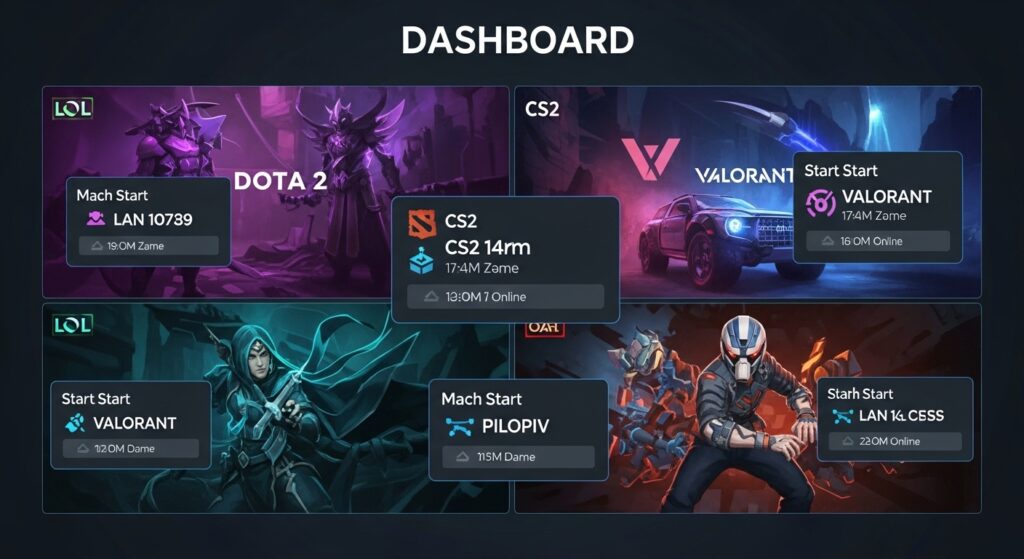
My not-fancy way to label the year
I name months by anchors. “Katowice month,” “MSI month,” “Cologne month,” “Worlds month,” “TI month,” “Champions month.” It’s silly. It works. Keeping the upcoming esports events schedule in mind makes this actually useful. When a friend asks if I’m free, I just say, “Nah, that’s Worlds time.” They accept it now.
A few personal traditions I recommend
- Finals brunch. Invite someone who doesn’t watch. Let them pick a team by logo. Instant stakes.
- Patch-note bingo. Free square is “bug fixes.”
- LAN photo album. Even if it’s just blurry phone shots of LED walls and nachos.
So what’s next?
In the near term, I’m watching for the first Masters and the big CS2 arena stops. MSI will twist the LoL meta again. R6 will steal a weekend with a perfectly timed Major. Dota will puff out its chest in late-year form like always.
And yes, I’ll keep updating my own plan when organizers shuffle the deck. The upcoming esports events schedule gets rewritten every few weeks. We survive. We adapt. We set two alarms. And we try not to miss map five because the dog needed to go out.
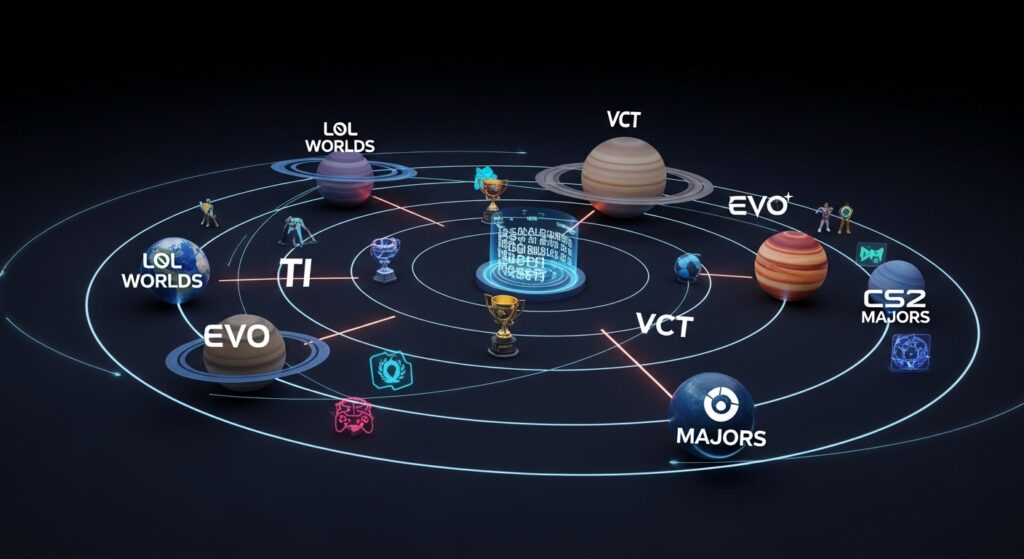
FAQs (from my DMs and group chats)
- Q: How do I find exact dates without hunting ten sites?
A: I bookmark official event hubs and the big organizer pages. Then I check weekly. Also follow team managers and talent on Twitter; they leak the “soft schedule” constantly. - Q: Are ticket drops random or announced?
A: Announced, mostly. But the window can be short. Turn on notifications for the event account and the venue. I’ve bought finals tickets at a grocery store line. Not proud. Effective. - Q: Best way to watch two tournaments on the same day?
A: Pick a main stream with sound. Put the second on mute. If both hit peak at once, pause one and catch up on 1.25x. Don’t try three. I have. It fries you. - Q: What’s a Swiss stage, and why do I hear it so much?
A: Teams play a set number of rounds, matched by record. Win three, you advance. Lose three, you’re out. It gives more meaningful matches early and fewer instant exits. Viewers like it. I do too. - Q: Do I need to care about patches before playoffs?
A: Yes. A small balance tweak can flip picks and maps. Read the patch summary. Even a quick skim helps you understand why the desk is yelling about one hero or agent.

John | Your source for Esports, Battle Royale, Role-Playing, Retro Games, and Gaming Gear. Let’s Enjoy!

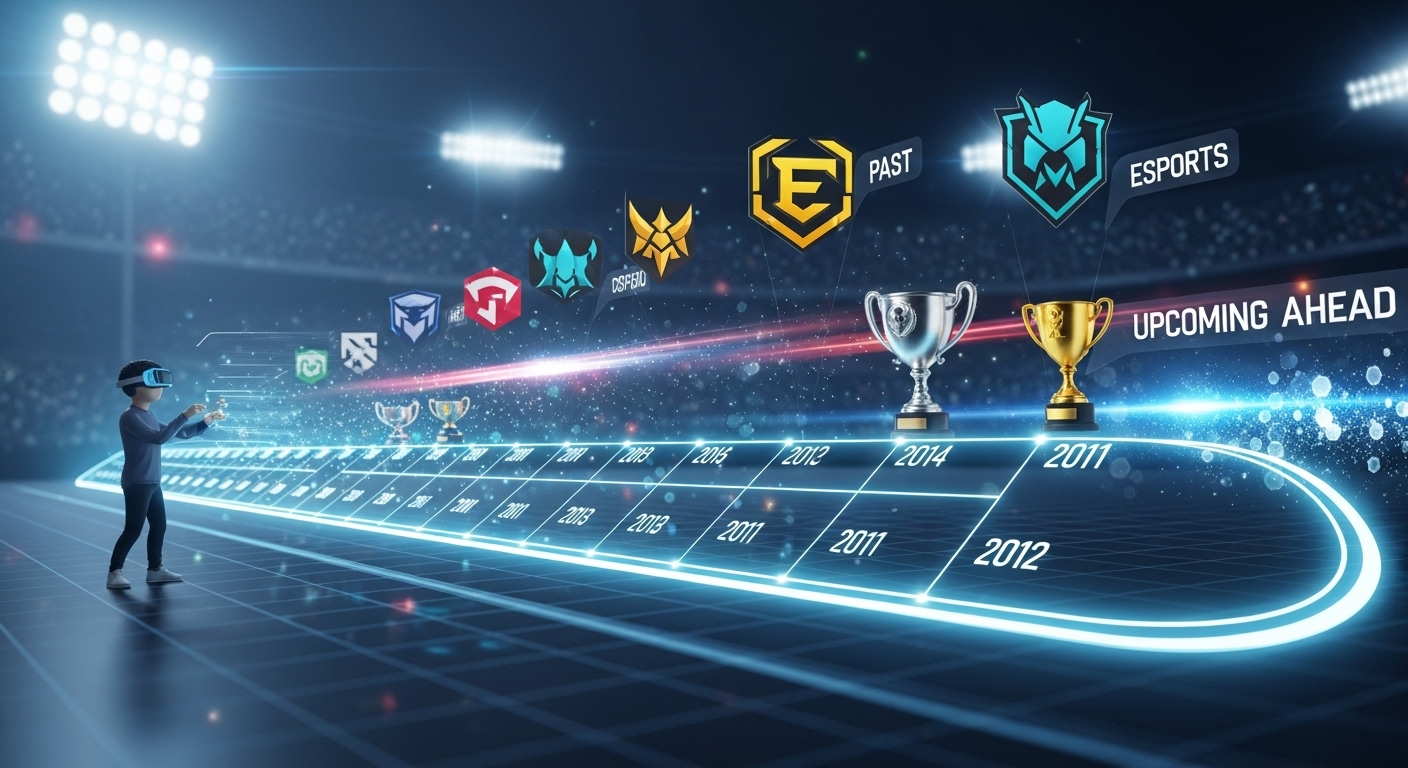
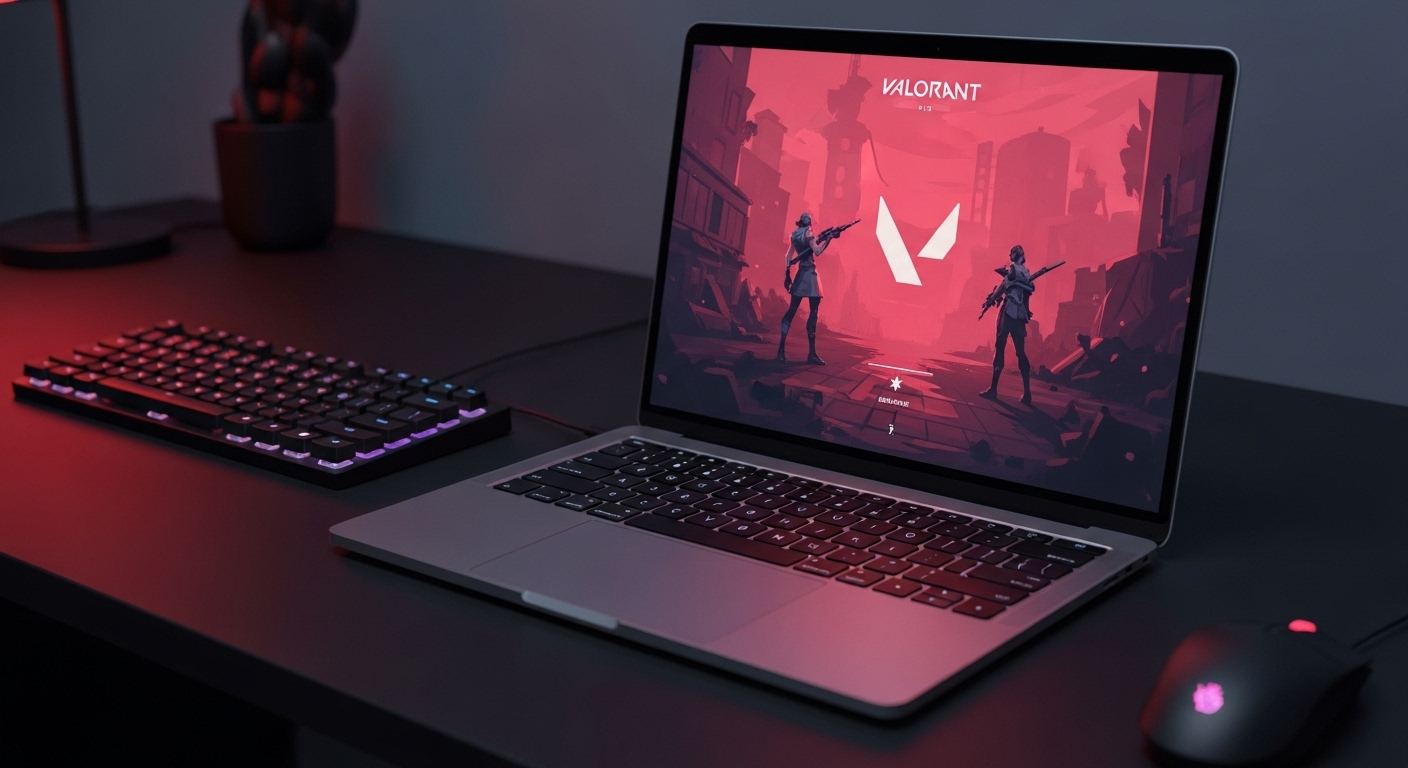

A must-read for any esports fan navigating the chaotic world of event schedules. Invaluable insights and tips.
This article is a lifesaver for esports fans trying to keep track of everything. Major events, schedules, and tips galore.
I need a spreadsheet like this in my life. So organized and dedicated to esports.
Insightful article! Keeping track of esports events is tricky, but staying organized and flexible is key. Thank you!
Esports schedule organization is an art. Love the tips on keeping up without losing your mind.
Great insights into the chaotic world of esports scheduling. Keeping track of everything is like herding cats!
Esports are a whirlwind – keep up, no matter the game. Tips are crucial!
Keeping up with esports events is like herding cats, but this guide makes it manageable. Don’t miss out!
How do you balance watching multiple game events without missing out on important matches?